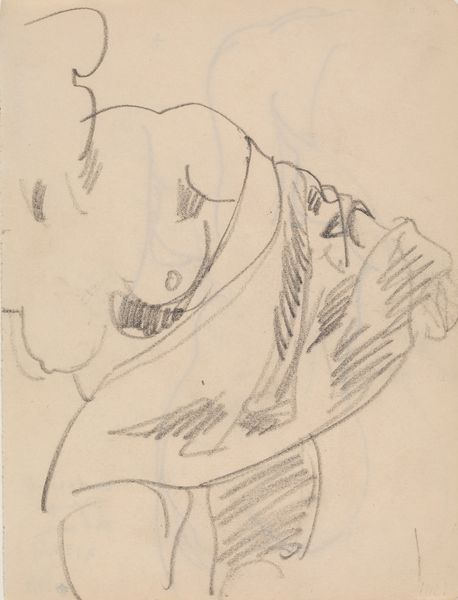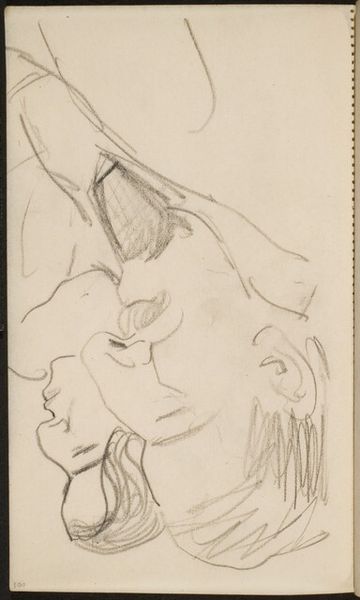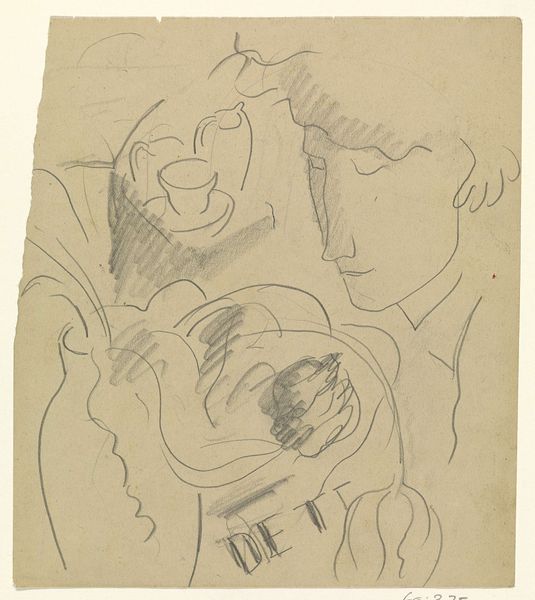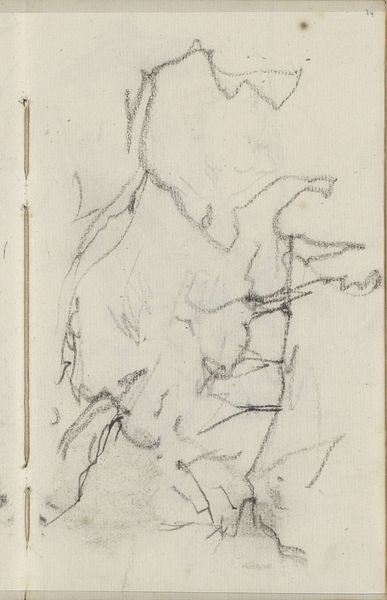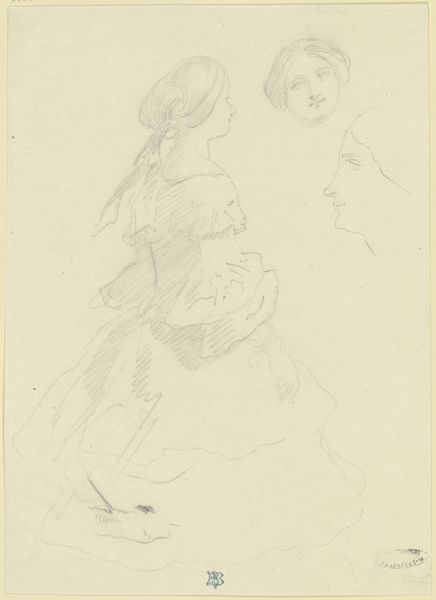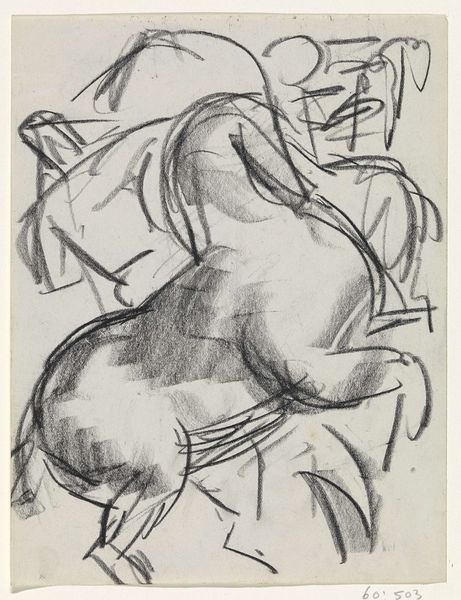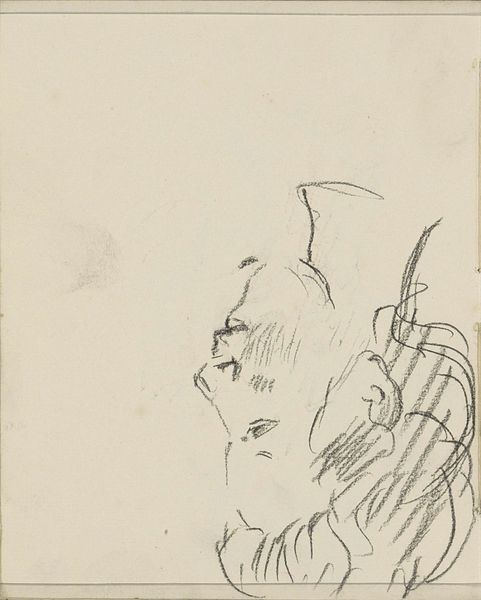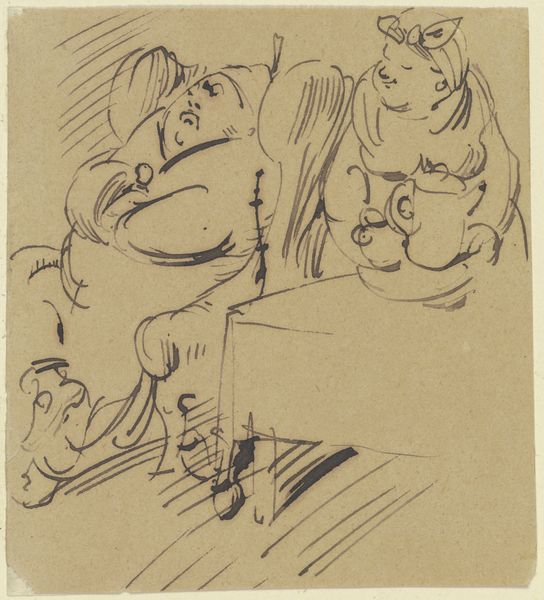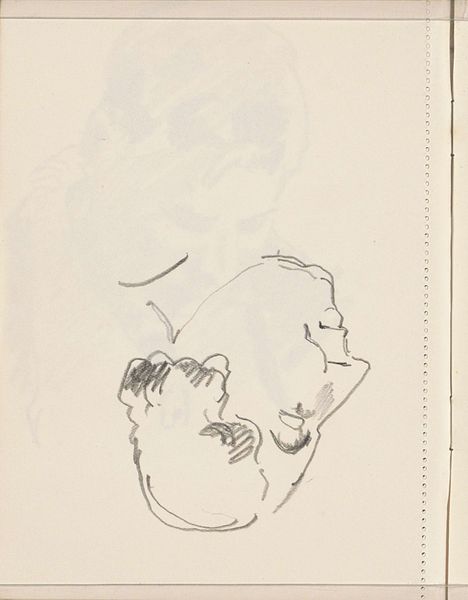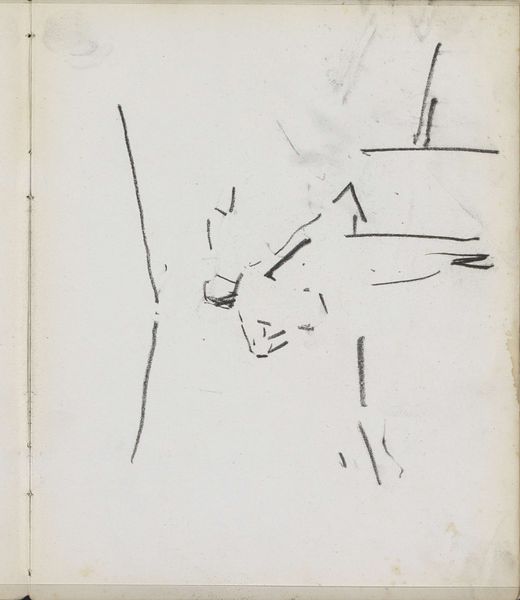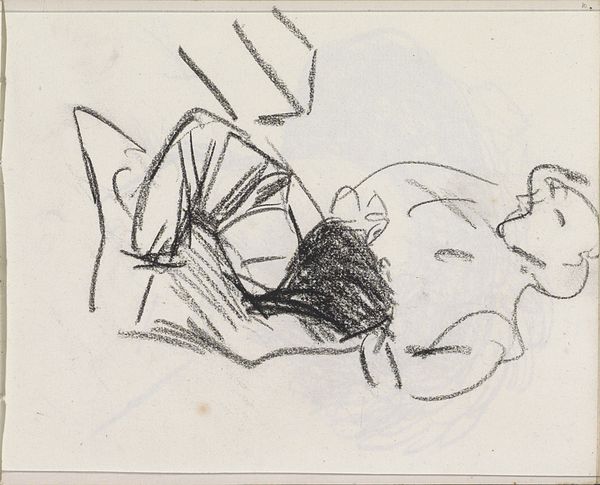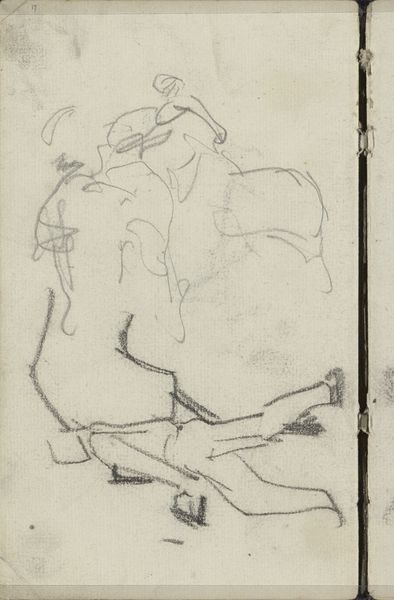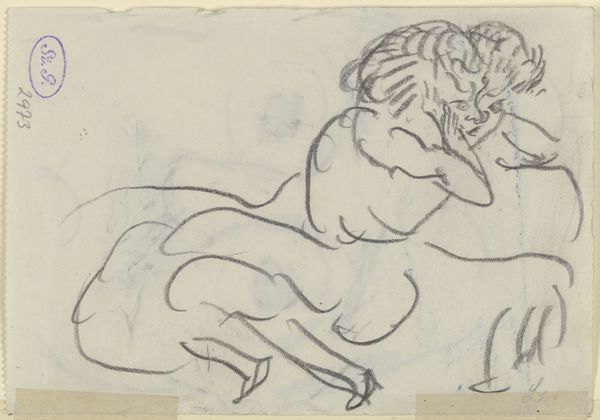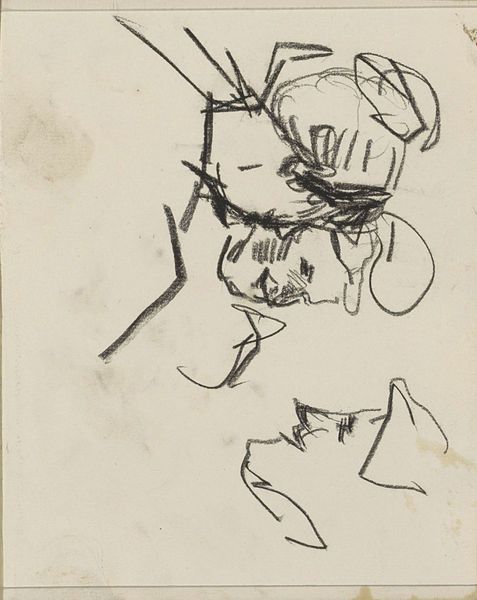
drawing, paper, chalk
#
portrait
#
17_20th-century
#
drawing
#
comic strip sketch
#
caricature
#
caricature
#
cartoon sketch
#
paper
#
personal sketchbook
#
german
#
idea generation sketch
#
ink drawing experimentation
#
sketch
#
expressionism
#
chalk
#
sketchbook drawing
#
portrait drawing
#
storyboard and sketchbook work
#
sketchbook art
Copyright: Public Domain
Editor: So, here we have Max Beckmann's "Flüchtige Karikatur Fridel Battenbergs", a chalk drawing from around 1916 or 1917. It's quite gestural and a bit raw. The caricature feels almost… defeated? What’s your take on it? Curator: Considering the historical context, the First World War deeply impacted Beckmann, leading to a personal crisis reflected in his art. This 'fleeting caricature' can be viewed as more than just a humorous sketch; it’s a portrayal of psychological turmoil and the general unease prevalent during that time. The 'defeated' mood you sensed speaks volumes. Think about it - how do such quick sketches function within a larger artistic practice and how do they reflect the political moment? Editor: That makes sense. I hadn't really considered it beyond the surface level. So the rawness... Curator: Yes, the rawness. It bypasses formal portraiture and delves into emotional representation. The social function of caricature often lies in its critical commentary. What kind of critique do you think Beckmann is offering here, if any? Editor: Perhaps a critique of the individual's role within a collapsing society? The individual overwhelmed? Curator: Precisely. And how might the institutional spaces exhibiting this work - then and now - shape the public's understanding and engagement with this commentary? It really encourages you to pause. Editor: It definitely gives you a lot to think about. I'll look at caricatures differently from now on. Thank you. Curator: My pleasure. Recognizing the social currents that inform even seemingly simple sketches enriches our understanding and fosters more nuanced appreciation.
Comments
No comments
Be the first to comment and join the conversation on the ultimate creative platform.
